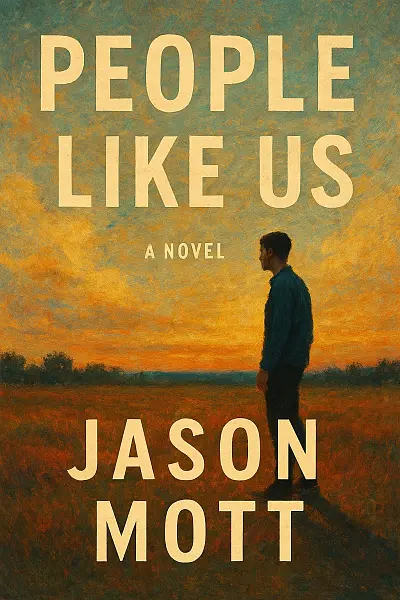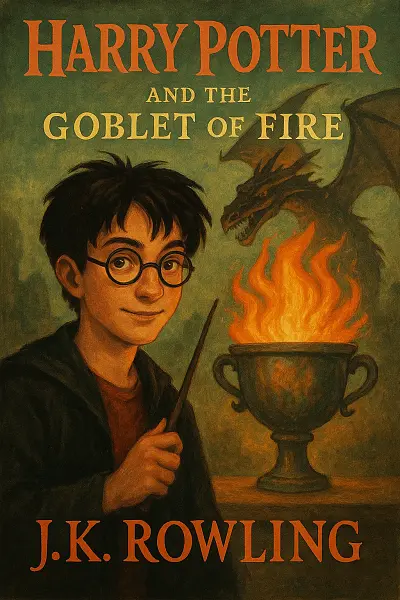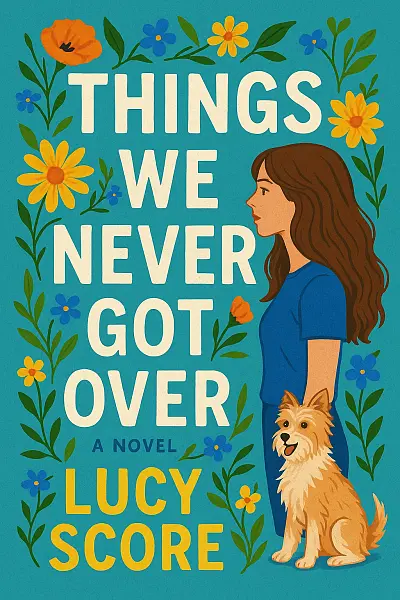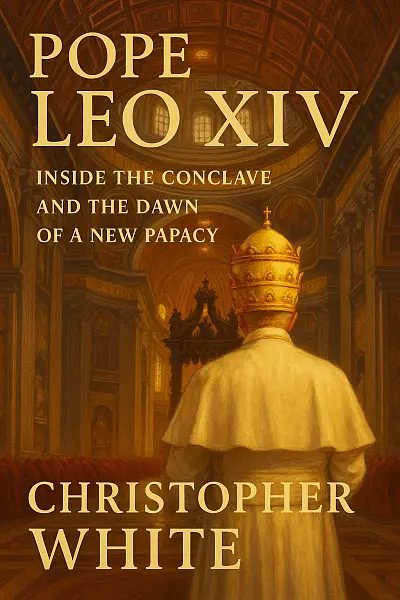
People Like Us
by: Jason Mott
Two Black writers are searching for meaning and belonging—one riding a wave of literary fame, the other bracing for an emotional school speech on gun violence. Their lives spin out of orbit when strange, dreamlike phenomena—peacocks, glimpses of time travel, hovering guns—invade their worlds, forcing them to face society’s wounds and their own aching longings.
Suddenly, personal and public grief collide, putting their emotional survival—and maybe hope for real human connection—on the line.
Blending biting humor and haunting tenderness, Jason Mott’s storytelling pulses with surreal charm, keeping us breathlessly asking: will they ever truly find peace?
"We are stitched together by the stories we carry and undone by the truths we choose to forget."
Let's Break This Down
The Author's Voice
Atmosphere
- Intimate & Observational: Mott builds an atmosphere that's both personal and sharply observant, charged with emotional undercurrents beneath ordinary moments.
- Subtle Tension: There's this ever-present hum of tension—not flashy, but deeply felt, like something unspoken lingering just out of sight.
- Rooted in Everyday Life: The setting isn't grandiose; it's everyday America, rendered with enough detail to feel lived-in, but never overbearing or fussy.
Prose Style
- Clean, Unpretentious Language: The writing is crisp and accessible, with a steady confidence. Mott doesn't overload sentences; he trusts the weight of what’s unsaid.
- Dialogue-Driven: Conversations feel authentic and kinetic, capturing the rhythms and energies of real people—sometimes clipped, sometimes sprawling, always meaningful.
- Evocative but Grounded: When Mott leans into imagery, it’s to serve emotion rather than spectacle. Metaphors are precise and chosen with care, amplifying mood without distracting from it.
Pacing
- Measured, Thoughtful Unfolding: The story takes its time—there's space for reflection, with momentum building through character interplay rather than plot pyrotechnics.
- Swells of Intensity: Key moments punch through the calm with sudden intensity, but Mott never lets these flashes overstay—he draws back to steady narrative waters.
- Responsive to Emotion: The pace often aligns with the emotional temperature; scenes linger or rush forward depending on the characters’ inner states.
Character Focus
- Deep Character Studies: This is 100% a character-first novel. Every action, silence, and aside is revealing—Mott wants you to feel like you really know these people by the end.
- Nuanced Interactions: Relationships are messy and layered; characters evolve at their own pace, never just to serve the plot.
Overall Mood & Feel
- Reflective, Sometimes Melancholy: There’s warmth, but it’s shot through with longing and regret, giving the story an undercurrent of melancholy that sticks with you.
- Empathetic Perspective: Even when laying bare his characters’ flaws, Mott writes with kindness—there’s an unmistakable generosity in his gaze.
If you’re looking for a book that sinks you into the lives of its characters with unshowy style and real emotional heft, People Like Us is the kind of quietly resonant reading experience you’ll remember long after the last page.
Key Moments
-
A searing, unfiltered look at small-town secrets—everyone has something to hide
-
Jarringly intimate monologues that peel back layers of guilt and longing
-
Diner confessions at 2 a.m.—where truth collides with denial
-
The haunting image of a funeral interrupted by laughter and rage
-
Characters you want to shake and hug at the same time—raw, painfully real
-
Moments when history refuses to stay buried, bleeding into every relationship
-
Sharp, cinematic prose that yanks you into the heart of the storm
Plot Summary
People Like Us by Jason Mott follows the intertwined lives of several characters in a small Southern town grappling with the sudden and inexplicable return of people who have recently died, now known as the “Returned.” The story centers on Harold and Lucille Hargrave, whose young son Jacob has been gone for decades but is suddenly returned to them, unchanged from the day he died. As more and more Returned reappear around the globe, society becomes increasingly tense and divided, with some viewing the phenomenon as miraculous and others as a threat. The town becomes a microcosm for the world’s fear, uncertainty, and hope, eventually descending into conflict as the government intervenes, confining the Returned to guarded facilities. The novel reaches its climax as violence erupts; in the aftermath, Harold and Lucille must come to terms with the impermanence of human life and love as Jacob disappears once more, leaving only memories behind.
Character Analysis
Harold Hargrave, the emotional anchor of the novel, starts as a man stunted by grief but finds spiritual renewal and heartbreak when Jacob returns. His practical skepticism clashes with Lucille, his devout wife, who sees Jacob's return as divine. Lucille undergoes significant transformation—her faith, initially unshakable, gets tested as she confronts the reality of the Returned, leading her to a bittersweet acceptance of loss. Jacob, meanwhile, remains an innocent presence, a catalyst for Harold and Lucille’s change and for the larger community’s reactions. Supporting characters, like Agent Bellamy and Pastor Peters, serve as contrasting perspectives—rational authority and desperate faith—that help explore broader societal responses to the miraculous event.
Major Themes
One major theme is grief and the desire for closure: the Returned force characters to re-examine unresolved sorrow and whether healing is ever possible. Faith versus skepticism plays out through Lucille and Harold’s differing reactions, highlighting how people wrestle with the unknown, especially when it challenges their worldviews. Community and otherness are essential as the Returned, though familiar, become outsiders, exposing latent prejudices and the struggle to balance fear with empathy. The novel further explores the nature of miracles—are they blessings or curses?—and suggests that love’s true test is in accepting loss and impermanence.
Literary Techniques & Style
Jason Mott’s writing is warm and accessible, using third-person narration to slip into multiple perspectives and build a layered emotional landscape. His prose is straightforward but laced with subtle lyricism, especially in passages grappling with memory and longing. Symbolism is pervasive, particularly the river (representing both life’s flow and boundaries between worlds) and references to returning as metaphors for memory, history, and unresolved trauma. Frequent use of flashbacks enriches characters and emphasizes the cyclical nature of grief. The narrative's gentle pacing mirrors the slow boiling of communal tension, favoring atmosphere and introspection over frenetic plot twists.
Historical/Cultural Context
Set in a contemporary Southern town reminiscent of the rural US South, the novel echoes the region’s social conservatism, deep religious roots, and fraught history with race and community boundaries. The Returned phenomenon acts as an allegory for societal anxieties about change, immigration, and the “other.” Post-9/11 skepticism and fear of difference linger in the background, as does the timeless moral panic when the familiar becomes strange. These cultural currents shape how characters respond—with suspicion, compassion, or fear—to the impossible events unfolding in their midst.
Critical Significance & Impact
People Like Us resonated with readers and critics for its meditative take on the supernatural as a lens into human emotion rather than spectacle. It carved out a space in modern speculative fiction for quieter, more intimate explorations of big questions. The book’s lasting influence lies in its compassionate portrayal of mourning and community, offering no easy answers but inviting readers to sit with ambiguity. Mott’s balance of realism and the uncanny stands out, challenging genre conventions and making the story both relatable and hauntingly memorable.

Rage, hope, and identity collide in a haunting mosaic of American race.
What Readers Are Saying
Right for You If
If you’re into literary fiction that digs deep into the human experience and doesn’t shy away from tough questions, People Like Us by Jason Mott should totally be on your radar. This book is perfect for folks who love character-driven stories, especially if you enjoy novels that blend raw emotion with social commentary. If you’ve ever liked books by Colson Whitehead or Jesmyn Ward, you’ll probably vibe with this one.
- Fans of powerful themes: If you’re drawn to stories about race, identity, and what it means to belong, you’ll find so much heart in these pages.
- Appreciators of lyrical prose: Mott’s writing style is beautiful but never pretentious—so if you love language that makes you pause and think, you’re in for a treat.
- Readers who are okay with complexity: This is one for you if you don’t need everything to wrap up neatly, and you like books that leave you pondering after you turn the last page.
- Book club enthusiasts: There’s loads to discuss here, whether it’s the layered characters or the book’s unique structure, so it makes a fantastic group read.
But honestly, if you want action-packed adventures, super twisty mysteries, or light, breezy escapism, People Like Us might not quite hit the mark for you. The pacing is a bit slower, and the story spends a lot of time in characters’ heads rather than chasing plot twists. And if you prefer stories with clear heroes and villains or happy endings, you might find this one a tad too nuanced or somber.
Bottom line? If you’re in the mood for a moving, thoughtful read that’s all about empathy and seeing the world through someone else’s eyes, give it a shot. Otherwise, you might want to pick up something a little lighter or more plot-driven for now.
What You're Getting Into
People Like Us by Jason Mott: Spoiler-Free Synopsis
Meet a tight-knit Southern community on the brink of change, where secrets simmer beneath the surface and every neighbor has a story to protect.
When a charismatic newcomer stirs up old wounds and loyalties, lifelong residents find themselves questioning who they can truly trust—and what it really means to belong.
With sharp wit and heartfelt humanity, Jason Mott delivers a vivid small-town drama that explores identity, prejudice, and the bonds that define—and challenge—“people like us.”
Characters You'll Meet
-
Cameron: The thoughtful protagonist haunted by his past and the novel's central mystery; his journey deals with guilt, memory, and the subjectivity of truth.
-
Kai: Cameron's compassionate partner, offering unwavering support and stability while grappling with the complexities of their relationship.
-
Dale: Cameron's estranged childhood friend whose reappearance stirs up unresolved emotions and challenges Cameron's perception of himself.
-
Rita: A keen and empathetic observer who helps bridge the gap between Cameron and those around him, urging healing and understanding.
-
Regina: A figure from Cameron’s youth who forces him to confront long-buried secrets, shaping both the narrative’s tension and Cameron’s emotional evolution.
More Like This
If People Like Us kept you turning pages into the night, there’s a good chance you’ll find similar resonance in The Nickel Boys by Colson Whitehead—the two books both unflinchingly explore the hidden fractures and injustices within American society, weaving profoundly moving stories through unforgettable characters. There’s a This Is How It Always Is by Laurie Frankel kind of honesty here too; Mott’s exploration of identity and community pulses with the same empathetic storytelling and emotional truth Frankel brings to her depiction of family and transformation.
On the screen side of things, the series Rectify echoes throughout People Like Us—that slow-burning exploration of redemption, memory, and scars left by the past is right up your alley if you were spellbound by Mott’s blend of quiet heartbreak and hope. Both the show and the book linger in the silences, drawing out stunning revelations that linger long after you’ve turned the final page or watched the last scene.
Critic's Corner
What if the dividing line between laughter and grief, magic and memory, were as fleeting as a peacock’s feather or as sharp as the echo of gunfire? People Like Us by Jason Mott dares readers to ask: in a world bent on erasure and violence, how do we hold onto joy, love, and each other?
Mott’s prose is a flex of inventive, dream-crowded energy—unmistakably his signature. He spins reality through a kaleidoscope: time fractures, sea monsters slip through conversation, and daily objects (“booze out of a trophy”) become vessels of defiance and pain. The writing veers between acerbic wit and almost unbearable tenderness, revealing trauma’s scars while never relinquishing hope’s grip. Dialogue, both interior and spoken, rings with authenticity and a sly, self-knowing humor; even side characters pop from the page, never passive observers but vivid, miraculous presences. The structure—braided narratives of two Black writers weathering acclaim and anguish—invites the reader to tumble through disorienting dream logic but always keeps a hand on the pulse of real human longing. Mott is at his best when sliding between the tragic and the absurd, using magical realism not as evasion but insistence: that pain and joy exist on the same breath.
Beneath the surreal textures, People Like Us grapples with urgent, uncomfortable themes: the omnipresence of gun violence, the invisible burdens of Black success, and the desperate desire for safety and meaning in a society determined to deny both. There’s exquisite pressure in every interaction, as the characters’ public victories are shadowed by ever-present threat—literally, with hovering guns, and spiritually, through the haunted weight of public expectation. Yet Mott refuses maudlin conclusions; instead, he wrestles honestly with collective grief, Black identity, and the ache of those left behind, ultimately proposing that survival is not just endurance, but a riotous act of reclamation. The mingling of fantastical intrusions with quotidian detail becomes a metaphor for the surreal experience of living with loss and fear in modern America. The novel is thus both deeply personal and insistently communal—a pulse-check on contemporary American anxieties.
Among novels blending autofiction, magical realism, and Black experience (The Sellout, The Trees, The Underground Railroad), People Like Us carves out territory squarely its own—less polemic than Paul Beatty, less grand narrative than Colson Whitehead, but every bit as pointed and playful. Compared with Hell of a Book, this work feels looser, more daring: where the earlier book circled trauma elliptically, here Mott swings out, risking messiness in the pursuit of raw truth. Within his own canon, it’s both an evolution and a declaration of unrepentant artistic freedom.
If the novel excels in inventiveness and emotional resonance, it occasionally falters in pacing—narrative tangents sometimes meander, and the merging of storylines feels more conceptual than organic. Yet these are minor quibbles beside its wild heart and unflagging originality. People Like Us is another electric, necessary entry in contemporary fiction: unashamed, unruly, unforgettable.
Community Thoughts
can we talk about how the scene in the diner with Evelyn just SHATTERED me? i kept replaying her words in my head—like, what do you even do after that? haunting in the best and worst way.
I haven't stopped thinking about that scene with Evelyn by the river. The way her silence filled the air, it genuinely creeped me out. Still haunts my dreams. Mott knows how to get under your skin with just a few words.
wait, did anyone else get completely rattled by the scene where Eva stands in the doorway, unmoving? couldn't shake it for days. jason mott, you absolute menace.
i was just reading along and then THAT SCENE with the rain-soaked letter hit, everything went sideways, i had to put the book down and just stare at the wall. wild.
I can’t get over that hallway scene where Eva just stands there, looking at the photograph. It’s like the whole book pivots right then. That moment lodged itself in my brain and won’t let go.
Leave Your Review
Local Take
Why It Matters
People Like Us by Jason Mott feels especially relevant for American readers, thanks to its razor-sharp take on race, identity, and belonging.
-
Historical Parallels: The novel taps into deep currents of U.S. history—think of the Civil Rights Movement, recent Black Lives Matter protests, and ongoing debates about systemic injustice. Moments in the book often echo real-life reckonings with privilege and marginalization.
-
Cultural Values: American ideals of equality and the “melting pot” are both challenged and complicated by Mott’s narrative. The raw honesty in confronting uncomfortable truths may spark vital conversations, but some readers might feel defensive or unsettled—exactly the kind of discomfort that drives change.
-
Plot Resonance: Certain plot twists hit harder for U.S. audiences, especially where microaggressions and coded language are concerned. These moments aren’t just literary devices—they’re real for many, making the story feel urgent and unflinchingly authentic.
-
Literary Traditions: Mott’s blending of realism with slightly surreal touches calls back to American literary voices like Toni Morrison and Colson Whitehead, while also subverting the traditional “outsider” narrative by empowering marginalized characters with agency and voice.
Food for Thought
Notable Achievement:
For People Like Us by Jason Mott has been praised for its insightful exploration of identity and community, and it notably garnered attention for its inclusion in several "Best Fiction" lists, reflecting its impact on contemporary fiction and resonating strongly with readers seeking nuanced stories about belonging.
Cultural Impact:
The novel sparked vibrant conversations in book clubs and online communities for its honest portrayal of social divisions, further establishing Mott's reputation as a significant voice in modern American literature.
Like what you see? Share it with other readers







